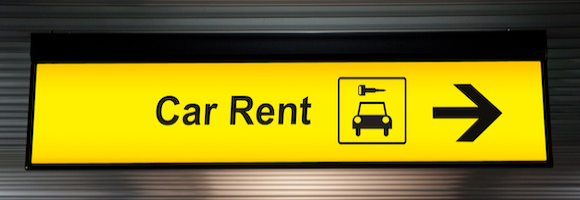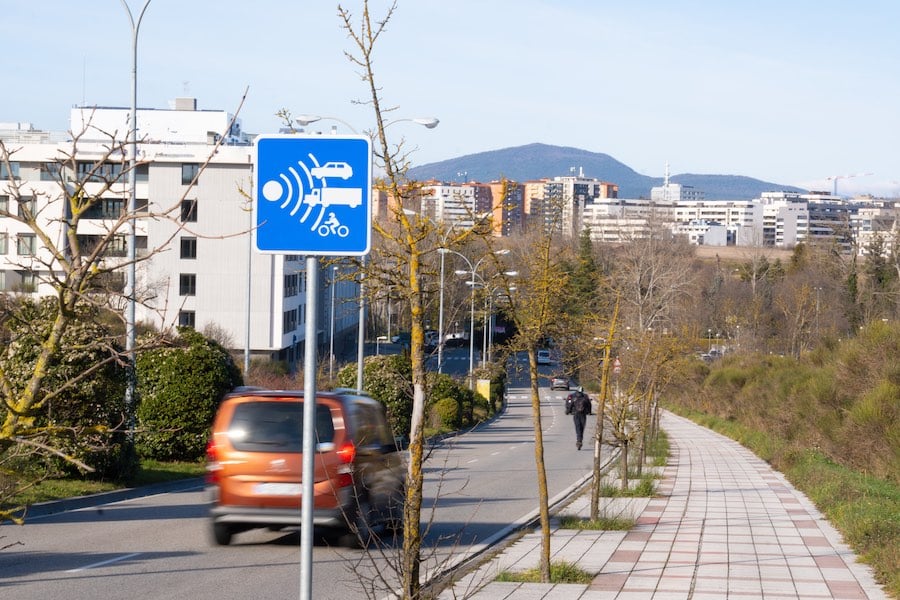
- Posted by stageadmin
- Tagged rental car europe, speed cameras europe.
- Posted on
Renting a car in Europe is one of the best ways to explore the region at your own pace, but it take it slow! Hurried travelers may be unaware that speed cameras are in use across many European countries.
In countries like Italy, there are over 10,400 traffic enforcement cameras, including both speed and red light cameras. Similarly, the United Kingdom uses around 4,815 cameras to monitor traffic.
These numbers highlight the importance of understanding speed enforcement practices to avoid unexpected fines and ensure a smooth journey. In this article, we’ll break down what you need to know about speed cameras when renting a car in Europe.
Types of Speed Cameras in Europe
If you plan on renting a car in Europe, it’s a good idea to familiarize yourself with the different types of speed cameras you may come across.
Here’s a quick look at a few of the most common types of speed cameras in Europe.
Fixed Speed Cameras
These are the most common type of cameras and can be found along highways and in areas with high traffic or frequent accidents. In France, for example, fixed cameras are usually installed on roadsides in high-risk areas to monitor speed and reduce accidents. You’ll usually find signs warning you of their presence.
Mobile Speed Cameras
These cameras are placed in unmarked police cars and can be set up anywhere. They’re often used in areas where there have been a lot of traffic problems. Some can even catch your speed from over a mile away.
Average Speed Cameras (Section Control)
These sneaky cameras track your average speed over a distance, not just at one point. Cameras at the start and end of the section record your license plate and time, so if your average speed exceeds the posted limit, you’ll get a fine. Countries like Italy and the UK use this system to monitor longer stretches of road.
Traffic Light Cameras
Installed at intersections, these cameras detect vehicles that run red lights or exceed speed limits within the intersection. They use sensors or ground loops to trigger the camera when a vehicle passes after the light has turned red. In the UK, for example, Gatso RLC 36 units serve this purpose, capturing images of vehicles violating traffic signals.
Variable Speed Cameras
These cameras track your speed when the speed limit changes due to things like traffic or weather. The limits are shown on digital signs, and the cameras make sure you’re sticking to them. The UK uses these cameras to manage traffic flow and reduce congestion.
What to Do if You Get a Ticket in Europe
If you get a speeding ticket while driving in Europe, the process for handling it is pretty straightforward, but the details can vary from country to country. Most countries will send the ticket to the registered owner of the vehicle, which in the case of a rental car means it will be sent to the rental agency. The rental company will forward the ticket to you, often adding an administrative fee for processing, or they may just charge your card on file directly.
Here’s what you should do if you find yourself with a speeding fine in Europe:
Paying the Fine
In most European countries, you can pay your speeding ticket online, by bank transfer, or through a local payment kiosk. The ticket will usually include instructions on how to pay and the deadline for payment. Some countries offer a discount for early payment, so it’s worth paying the fine as soon as possible to avoid extra fees. It’s also worth noting that in some countries, you might be required to pay the fine on the spot if you’re pulled over by the police.
Appealing the Fine
If you think you were wrongfully issued a ticket, the good news is you can appeal it. Each country has a process for submitting an appeal, which can usually be done online or by mail. You’ll need to provide evidence to support your case, like photos or a valid reason why you didn’t deserve the fine. Just keep in mind that appeals can take time to process and there’s no guarantee your ticket will be overturned.
Late Payments
If you miss the payment deadline, you’ll likely face additional charges (just like in the U.S.), which can increase the fine amount significantly. In some cases, unpaid fines can result in more severe penalties like difficulty renting a car in the future or even legal action.
Speeding Fines in Popular European Destinations
France
In France, speeding fines vary depending on how much you exceed the limit (like all countries). If you’re caught speeding by less than 20 km/h, the fine is typically €68, but if you exceed the limit by more, fines can go up to €375. The good news is that if you pay within 15 days, the fine can be reduced to €90.
Italy
For minor violations, fines typically range from €42 to €173. If you’re caught speeding by more than 40 km/h over the limit, the fines can increase significantly. Speed cameras are common throughout Italy, particularly on highways and in cities. Fixed cameras are usually accompanied by road signs warning drivers, but mobile cameras set up in unmarked police cars can be harder to spot.
Foreign drivers don’t have to worry about points being deducted from their home licenses, but the fines will still apply to the vehicle’s license plate and rental car companies will pass along the ticket to you.
Spain
Spain uses a grading system for speeding fines, so you’ll know exactly how much you’ll owe based on how far over the limit you go. For example, exceeding the speed limit by just a small margin (up to 20 km/h) usually results in a €100 fine. If you’re caught going 21-30 km/h over, the fine jumps to €300. More significant violations—over 50 km/h above the limit—carry hefty penalties of up to €600.
Spain may also offer discounts if you pay your fine early (typically within the first few weeks), though this can vary by region and circumstance. And while Spain’s system also includes deducting points from a Spanish driver’s license, as an American driver, you won’t lose points on your U.S. license.
Germany
Germany is known for having sections of the Autobahn without speed limits, but when limits are posted, violations are taken seriously. Speeding fines typically range from €30 for minor violations (up to 10 km/h over the limit within city limits) to €680 for exceeding the limit by more than 70 km/h in urban areas. Outside city limits, fines for minor speeding start around €20 and can reach €600 for speeds exceeding 70 km/h above the limit.
United Kingdom
If you’re caught speeding in the UK, you’ll face a fine of at least £100. Speeding tickets are issued either from speed cameras or directly by police officers. If caught by a camera, you’ll receive a Notice of Intended Prosecution within two weeks which you’ll need to respond to promptly. The fine is typically a fixed penalty (£100), but you might be given the option of attending a speed awareness course instead (usually offered only if it’s your first offense in three years).
Final Thoughts
Getting a speeding ticket can certainly put a damper on your European vacation, so it’s always best to stay alert and respect local speed limits. If you do find yourself with a fine, don’t forget that many European countries offer discounts if you pay early—definitely worth taking advantage of to save some money if you can. Of course, by the time you receive the ticket, you will probably already be home and the early payment deadline may have passed. Rather than owe hundreds, or thousands, of dollars in speeding tickets and traffic violations, it is best to mind the rules of the road and enjoy your journey at the speed limit.
While travel insurance won’t save you from speeding fines abroad, it can still protect you from other unexpected expenses, like trip interruptions, medical costs, or lost luggage. TravelInsurance.com can help you easily compare policies and find the right coverage for your trip. Safe travels!
Compare and Buy Travel Insurance
Compare and buy travel insurance plans from top rated insurers




















